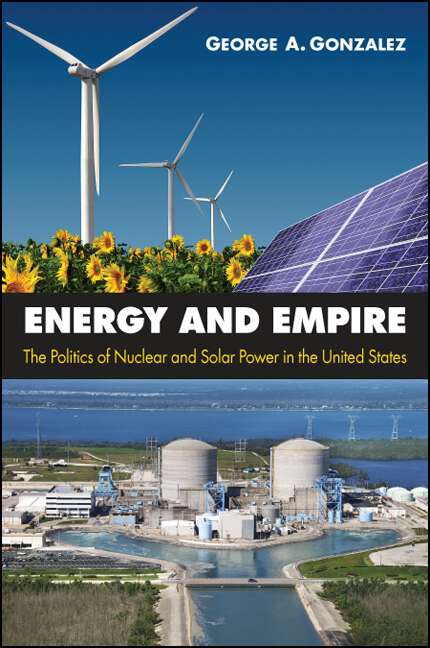Energy and Empire: The Politics of Nuclear and Solar Power in the United States
By:
Sign Up Now!
Already a Member? Log In
You must be logged into Bookshare to access this title.
Learn about membership options,
or view our freely available titles.
- Synopsis
- What set the United States on the path to developing commercial nuclear energy in the 1950s, and what led to the seeming demise of that industry in the late 1970s? Why, in spite of the depletion of fossil fuels and the obvious dangers of global warming, has the United States moved so slowly toward adopting alternatives? In Energy and Empire, George A. Gonzalez presents a clear and concise argument demonstrating that economic elites tied their advocacy of the nuclear energy option to post-1945 American foreign policy goals. At the same time, these elites opposed government support for other forms of energy, such as solar, that cannot be dominated by one nation. While researchers have blamed safety concerns and other factors as helping to arrest the expansion of domestic nuclear power plant construction, Gonzalez points to an entirely different set of motivations stemming from the loss of America's domination/control of the enrichment of nuclear fuel. Once foreign countries could enrich their own fuel, civilian nuclear power ceased to be a lever the United States could use to economically/politically dominate other nations. Instead, it became a major concern relating to nuclear weapons proliferation.
- Copyright:
- 2012
Book Details
- Book Quality:
- Publisher Quality
- Book Size:
- 176 Pages
- ISBN-13:
- 9781438442969
- Related ISBNs:
- 9781438442945, 9781438442952
- Publisher:
- State University of New York Press
- Date of Addition:
- 08/07/23
- Copyrighted By:
- State University of New York
- Adult content:
- No
- Language:
- English
- Has Image Descriptions:
- No
- Categories:
- Nonfiction, Politics and Government
- Submitted By:
- Bookshare Staff
- Usage Restrictions:
- This is a copyrighted book.
